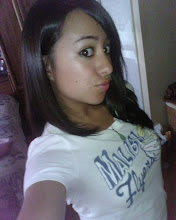Every day, the word “cool” is tossed around as if it is nothing, effortlessly leaving people’s lips, without requiring much thought to the definition behind this four letter word. What is the definition of “cool”, and who defines what is considered “cool”? Does your style make you cool, the way you act, your personality? Or is it something completely different? What do people mean when they say “you’re cool”? These are some of the questions I am hoping to answer through this unit, and here are some of my answers to these questions.
I do not believe there is a universal definition of the word “cool”, rather a definition chosen by that of the person. Different people define what is “cool” in different ways; some people might say that being cool involves not caring or being a rebel, while others might think being cool means conforming to society’s standards. I believe that being cool ties into the idea of being popular, or being liked by many people. Your style might be cool or your personality might be cool, and that might make you cool to others. But what makes you “cool” to others? I believe what makes you cool is the ability to make people like you, and follow you. Sadly, our society is filled with followers rather than leaders, and when one spots a leader type, someone who isn’t afraid to show authority, they automatically think, “hey they’re cool”. There’s no fundamental base to what is cool, no concept written in textbooks, or steps to follow. Being cool is based on one’s perspective of others. I can say that I think Kate D’Auria, or Carrie Li, are cool (which I do believe is true), however people might beg to differ. I could argue that Carrie’s effortless style makes her cool in my eyes, and Kate’s ability to be nice to everyone makes her cool also. But this is my perspective, someone, let’s say Maggie Zheng, might think differently. We could argue over whether or not Kate and Carrie are cool, but what difference would it make? It’s an opinion, not a fact.
What is “uncool”? Who is “uncool”? Who defines what “uncool” is? I believe that being “uncool” ties into the whole concept of being “unpopular”. If one does not have many friends, or does not have a sense of style, they might be considered “uncool”. They don’t demand respect from others, or do anything to impress others. However, a person’s perception of whom or what is cool also depends on opinion. I could think sidekicks (the cell phone) are cool, but my mother might think they are uncool. These concepts of cool versus uncool plays into a person’s perception.
During class, Andy shot down Beatrice’s idea that Ali Jo was the coolest kid in school (as defined by the school as whole), or that Kareem was the coolest kid in school as spoken by Charles. When asked what made someone cool, or by what standards was he measuring these people, Andy did not share his thoughts. His moment of silence prompted me to believe that people think other people are cool based on what they admire in that person. Charles admires Kareem because he is funny, which makes Kareem cool in his eyes. Beatrice admires Ali Jo because she is a free-spirit, who does not care what others think of her, which makes her cool in Beatrice’s eyes. We believe that people are cool based on what we admire most about that person. We want to be like that person, in one way or another, and by deeming them cool we are setting them on a pedestal to admire from afar.
When people call others “uncool”, they are comparing that person to themselves. If they don’t think that person’s sense of style is uncool, they are comparing it to their sense of style or someone’s style they admire. In this critical society we live in, we automatically compare people without even realize it, giving the phrase “don’t judge a book by its cover” a sweep to the back of their mind.
What makes someone cool? What makes someone uncool? What are the definitions of these two words, and how can one work towards being cool? What fundamental concepts are there to follow in order to be cool? Hopefully this unit will provide the answers to these questions.
Subscribe to:
Post Comments (Atom)

No comments:
Post a Comment